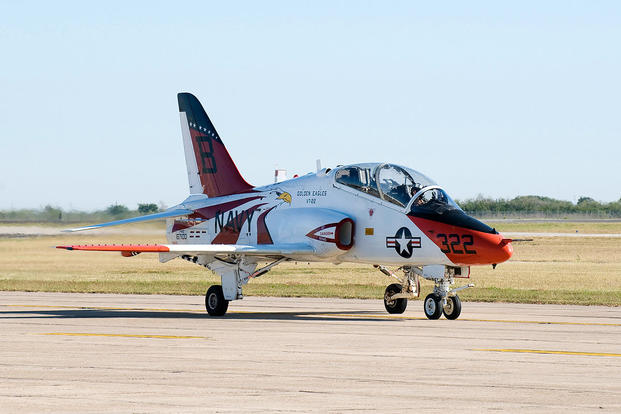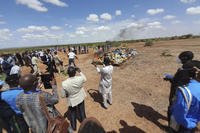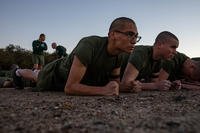The morning after it was reported that some 100 Navy instructor pilots are refusing to fly due to concerns about hypoxia-like problems in the cockpits of T-45 training jets, service officials announced that Naval Air Forces has directed a three-day "safety pause" for the T-45 aviation community.
The temporary pause, which will run from Wednesday through Friday, will allow time for the Navy's aviation leadership to speak with the pilots, listen to their concerns, and discuss ongoing risk mitigations, Naval Air Forces spokeswoman Cmdr. Jeannie Groeneveld said in a statement provided to Military.com.
News of the pilots' refusal to fly was first reported Tuesday night by Fox News. The outlet reported that Marine 1st Lt. Michael Pence, son of Vice President Mike Pence, is among the student pilots affected by the strike.
Last Friday, roughly 40 percent of flights in T-45 training commands -- located in Meridian, Mississippi; Pensacola, Florida; and Kingsville, Texas -- were canceled after instructor pilots cited operational risk management concerns, Groeneveld said in the statement. When that happened, she said, engineers were dispatched to the three wing locations to conduct briefs with pilots and further discuss the problem.
Fox reported that physiological episodes connected to problems with the trainers' onboard oxygen generation systems had quadrupled over the last five years, with 10 episodes in the last month. In August, the report notes, a flight instructor and student ejected near Kingsville after they both felt symptoms of hypoxia. While they both survived without injury, the aircraft crashed and was destroyed.
Groeneveld said no resource is being spared to find the source of the problem.
"To tackle this as effectively as possible, [the Naval Aviation Enterprise] is using an 'unconstrained resources' approach to the problem, with multiple lines of effort established to address physiological episodes," she said. "Progress and potential solutions have no manpower or cost restraints."
She added that physiological episodes in the cockpit are the number one safety priority for the Navy, a point multiple officials have made before, and said the service is committed to fully understanding all causal factors and eliminating the issue.
"This is a complex problem with multiple interrelated potential causal factors," she said. "The root cause of physiological episodes remains unidentified, but engineers are working diligently to find a solution."
In an interview with Military.com on Wednesday, Rear Adm. DeWolfe Miller, the Navy's director of air warfare, said he expects honest discussions between the service's engineering team and instructor pilots to allay the community's concern.
"My expectation is we're back in the air, we're flying, and guys will feel more confident knowing that leadership is listening and doing something about the issue," he said.
-- Editor's Note: This story has been updated to correct mistaken information provided by the Navy regarding the length of the operational pause, which will be three days, not two.
-- Hope Hodge Seck can be reached at hope.seck@military.com. Follow her on Twitter at@HopeSeck.




























